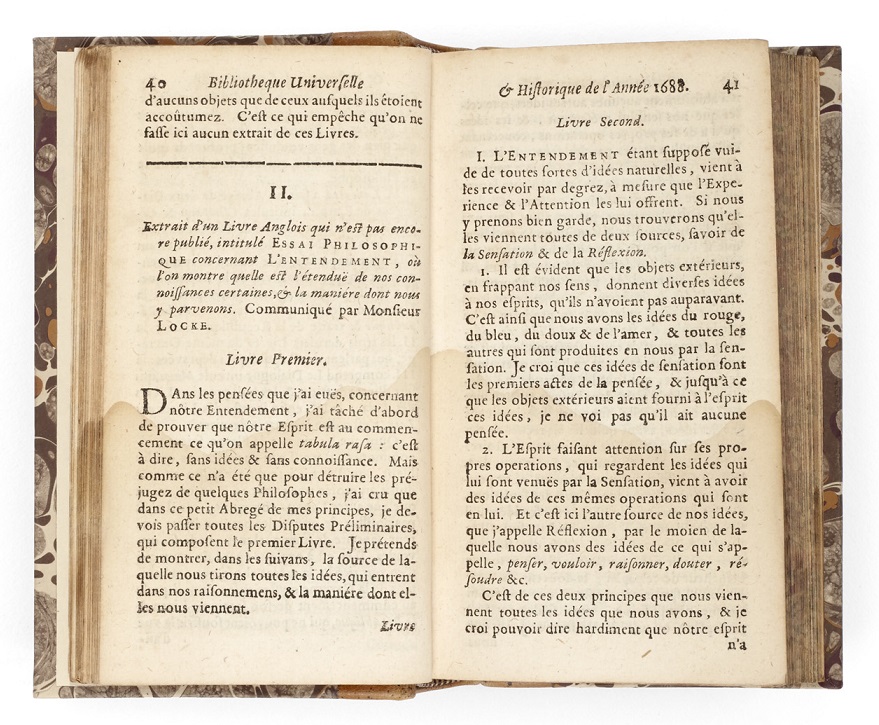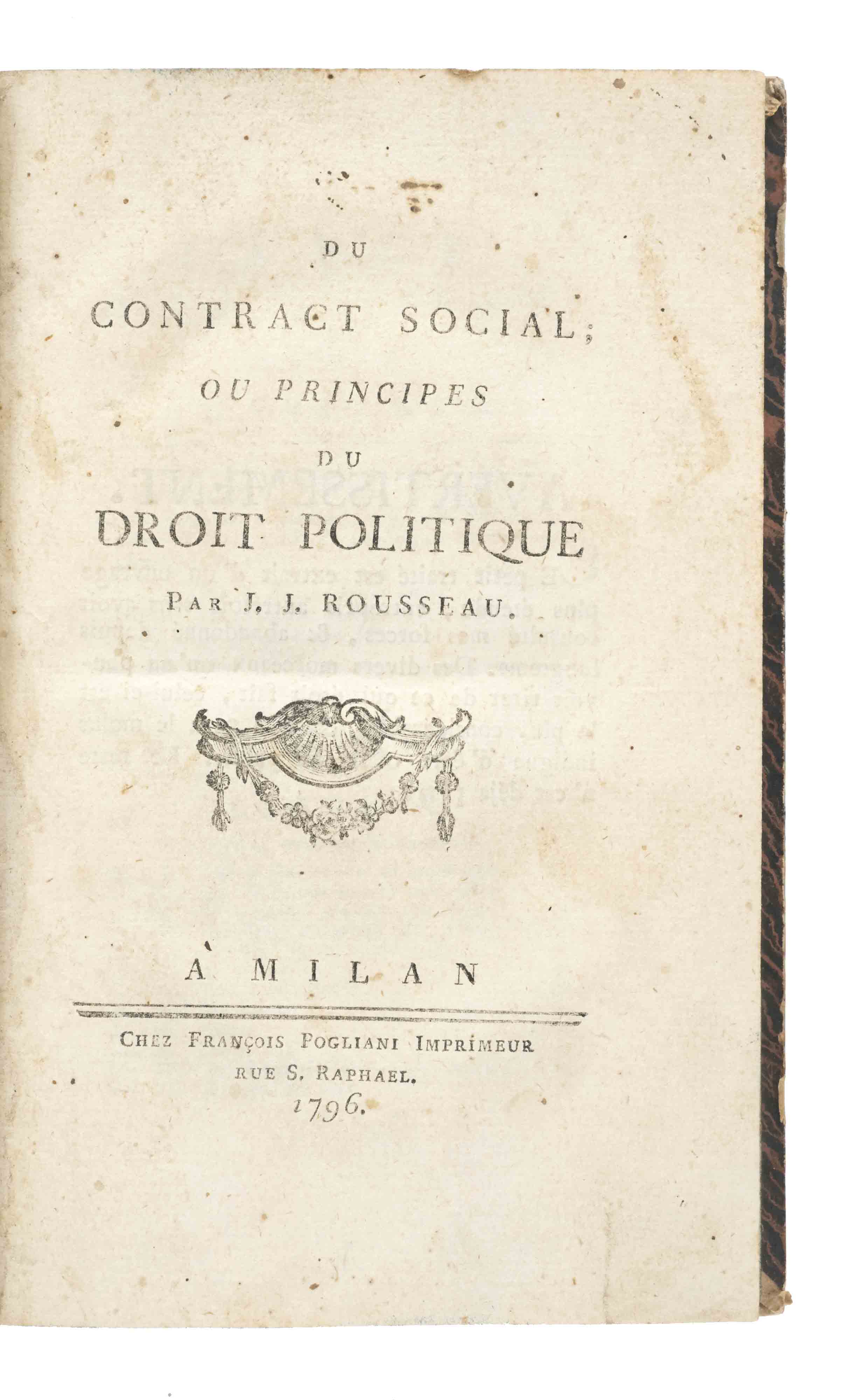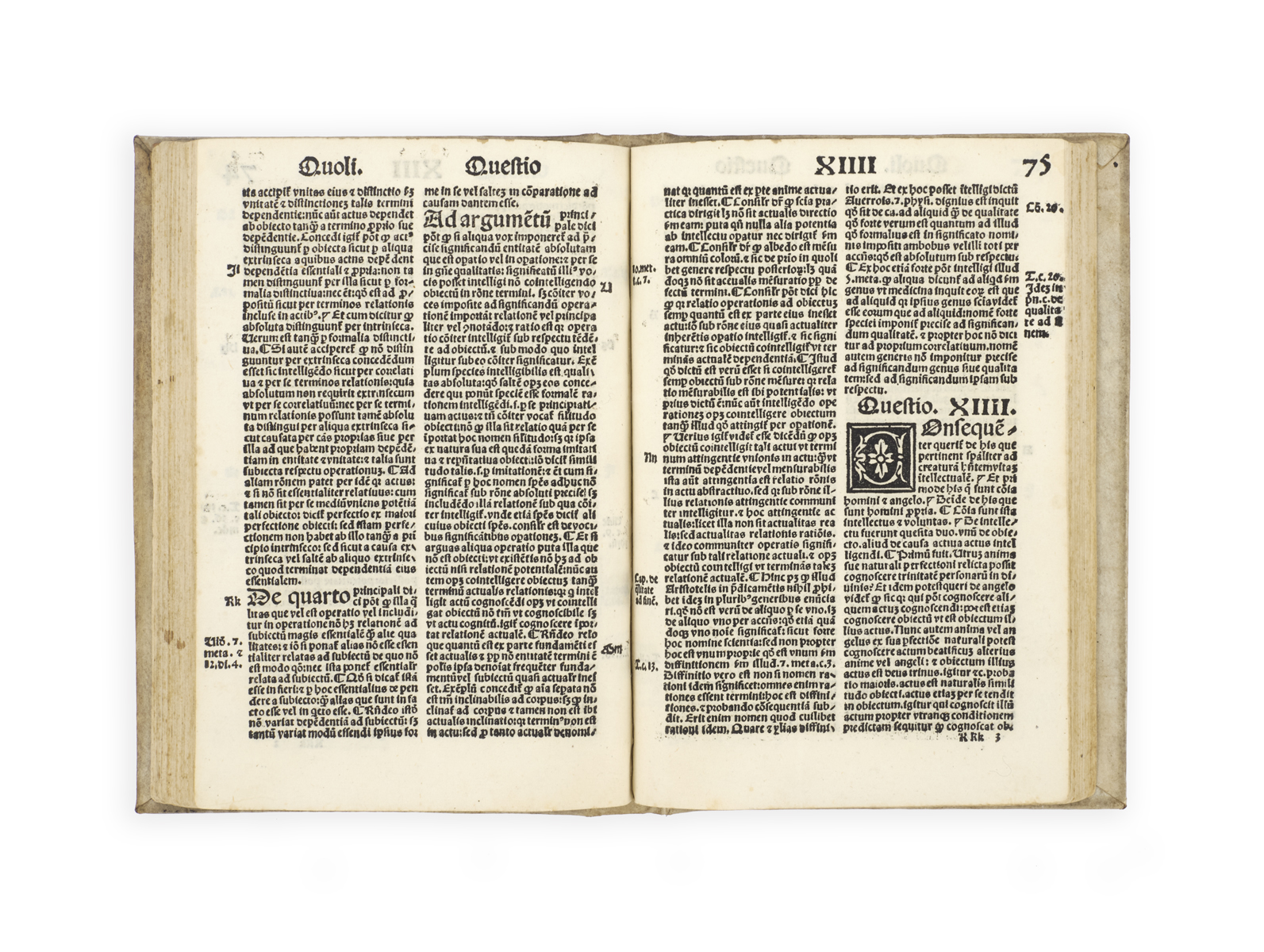
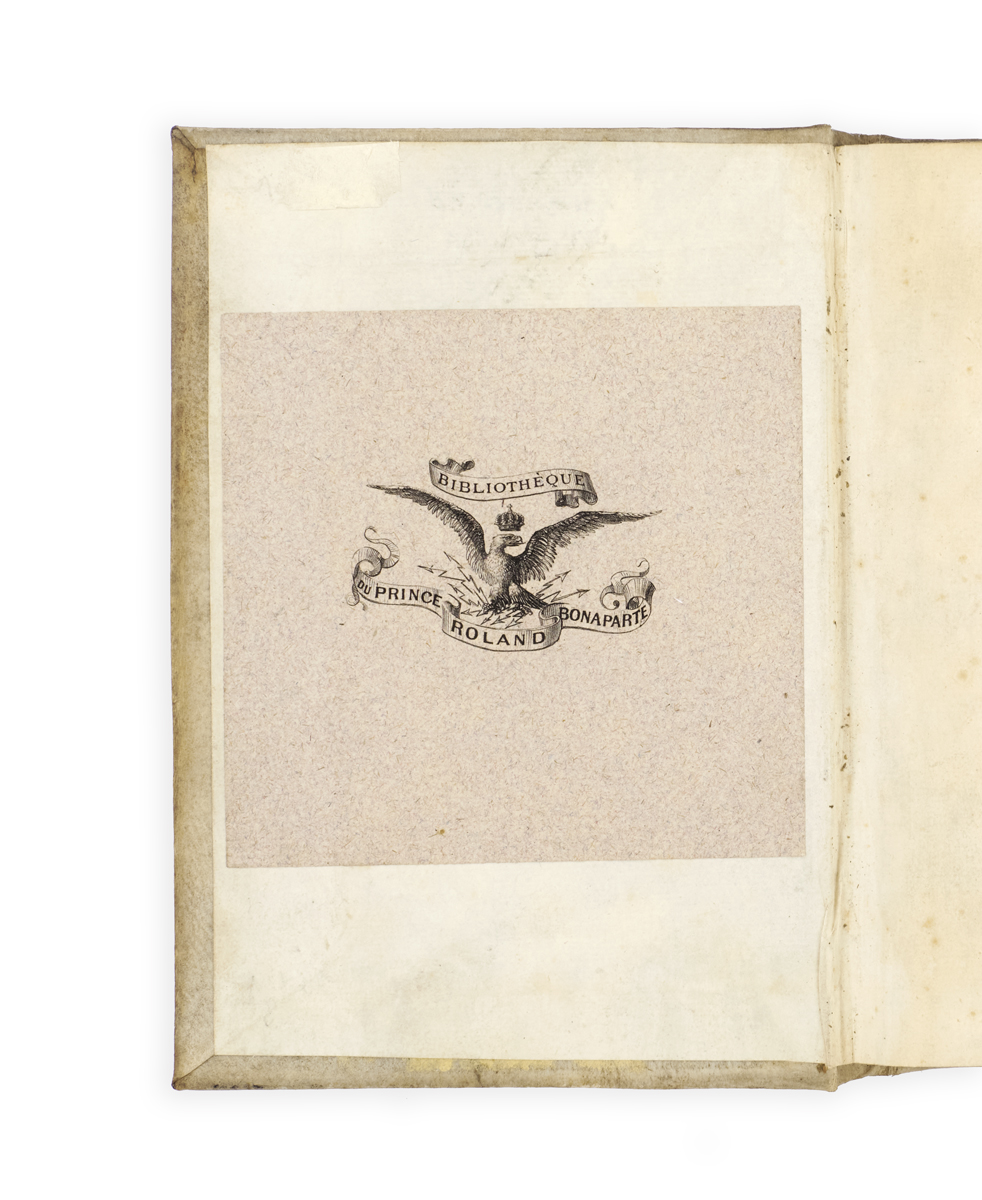
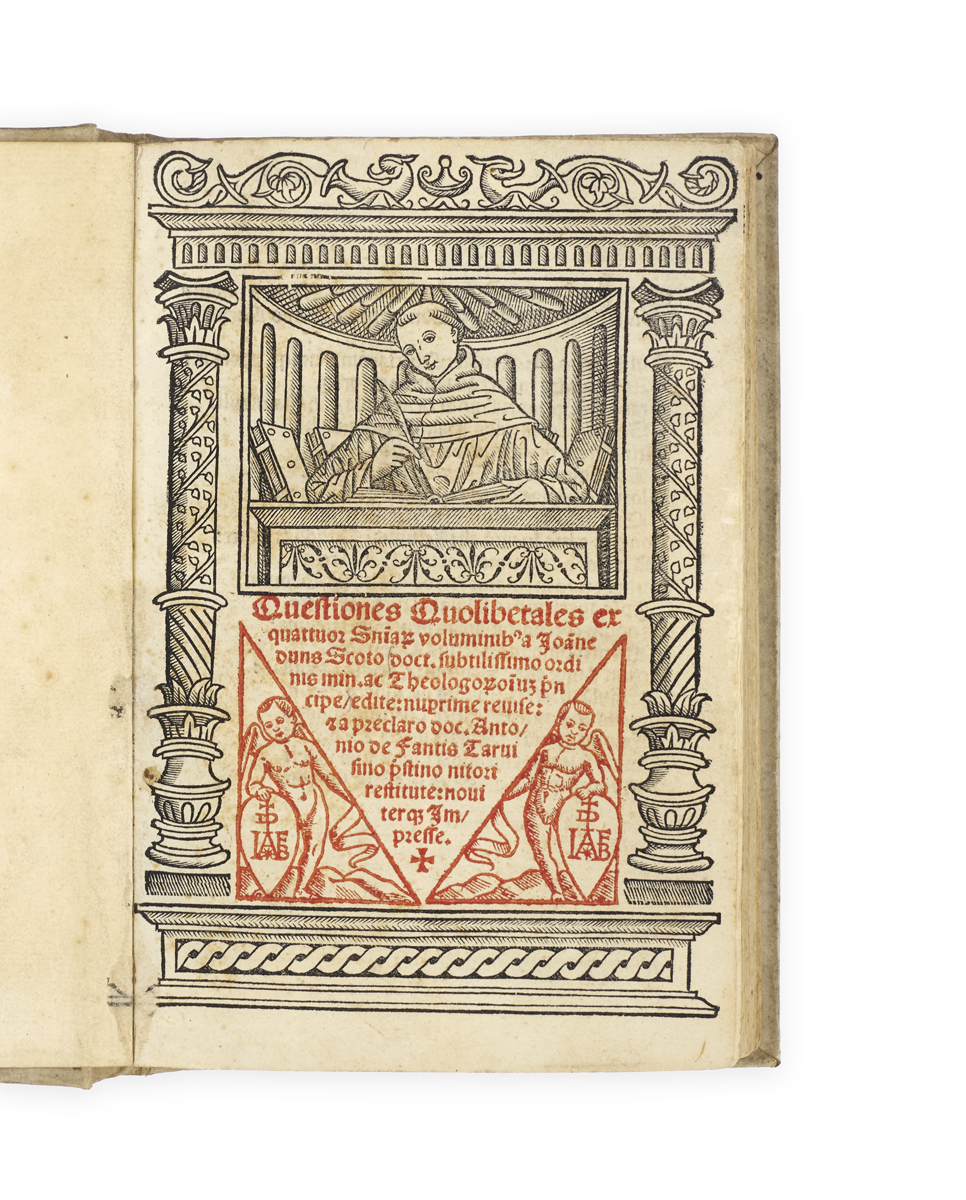
PRINCE BONAPARTE'S COPY
DUNS SCOTUS, John.
Questiones quodlibetales ex quattuor Sententiarum voluminibus … nunc prime revise … a … Antonio de Fantis.
Pavia, Giacomo Pocatela, 1517.
8vo, ff. 118, [1], [1 (blank)]; title-page with woodcut portrait of John Duns Scotus within architectural frame, title and surrounding woodcut putti bearing printer’s monogram printed in red, woodcut printer’s device at end, text in blackletter in two columns, running titles, shoulder notes; stain to f. 38r, trimmed rather close, else a very good, clean copy, in early nineteenth-century stiff vellum, gilt green morocco lettering-piece to spine; early inscription along upper edges, bookplate of Prince Roland Bonaparte (1858–1924) to front pastedown.

Added to your basket:
Questiones quodlibetales ex quattuor Sententiarum voluminibus … nunc prime revise … a … Antonio de Fantis.
Uncommon Pavia-printed edition of Duns Scotus’s Quaestiones on Peter Lombard’s Sentences, edited by the Padua-based theologian Antonio de Fantis and first published two years earlier.
The thirteenth-century Franciscan friar, philosopher and theologian John Duns Scotus was formed and taught at the Universities of Oxford, Cambridge, and Paris. His lectures on Peter Lombard’s Sentences earned him Europe-wide renown and was the best-known vehicle for his thought. Although Scotus had prepared his lectures for publication, the work was still unfinished upon his death in 1308. Many of his pupils and followers tackled its completion, ordering material and adding reported versions of his lectures (‘reportationes’) to varying degrees of reliability. This body of work and the underlying philosophical assumptions became known as Scotism and exerted great influence on late-medieval culture and Scholasticism.
This edition was edited by Antonio de Fantis, a pupil of Trombetta at Padua, one of the most effective Scotists of the sixteenth century. His work is significant in bridging Scotus’ Scholasticism and, more generally, Aristotelianism through to the height of the humanistic era, and was regarded with admiration by Renaissance thinkers such as Pomponazzi. The printer, Jacob de Paucis Drapis de Burgofranco, or Pocatela in the vernacular, operated in Pavia for two decades, publishing juridical, medical, philosophical, and literary texts. Anna Giulia Cavagna points to the year 1517 as the apex of the mature flourishing of Pocatela’s activity.
Rare outside Italy: we find only three copies only in the UK (BL, Bodleian, CUL), two in Canada, and none in the US.
EDIT16 17866; USTC 827872. See Cavagna, Libri e tipografi a Pavia nel Cinquecento (1981), pp. 174 ff.
